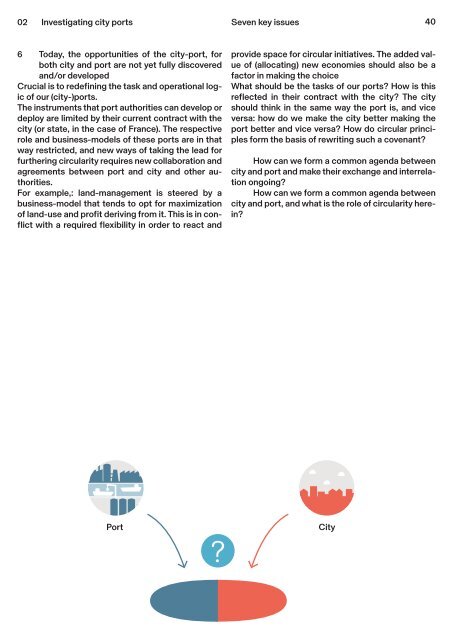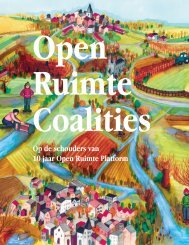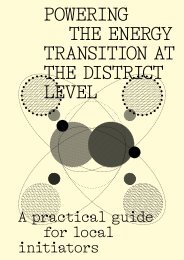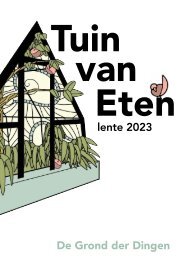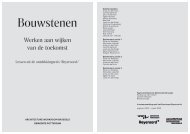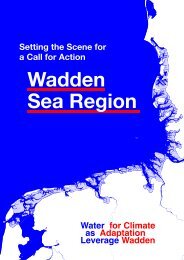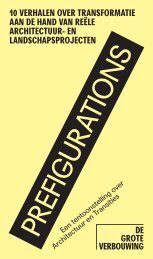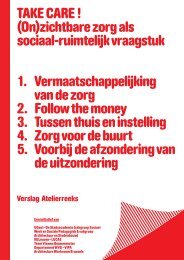Circular City Ports - Workbook
Create successful ePaper yourself
Turn your PDF publications into a flip-book with our unique Google optimized e-Paper software.
02 Investigating city ports Seven key issues<br />
40<br />
6 Today, the opportunities of the city-port, for<br />
both city and port are not yet fully discovered<br />
and/or developed<br />
Crucial is to redefining the task and operational logic<br />
of our (city-)ports.<br />
The instruments that port authorities can develop or<br />
deploy are limited by their current contract with the<br />
city (or state, in the case of France). The respective<br />
role and business-models of these ports are in that<br />
way restricted, and new ways of taking the lead for<br />
furthering circularity requires new collaboration and<br />
agreements between port and city and other authorities.<br />
For example,: land-management is steered by a<br />
business-model that tends to opt for maximization<br />
of land-use and profit deriving from it. This is in conflict<br />
with a required flexibility in order to react and<br />
provide space for circular initiatives. The added value<br />
of (allocating) new economies should also be a<br />
factor in making the choice<br />
What should be the tasks of our ports? How is this<br />
reflected in their contract with the city? The city<br />
should think in the same way the port is, and vice<br />
versa: how do we make the city better making the<br />
port better and vice versa? How do circular principles<br />
form the basis of rewriting such a covenant?<br />
How can we form a common agenda between<br />
city and port and make their exchange and interrelation<br />
ongoing?<br />
How can we form a common agenda between<br />
city and port, and what is the role of circularity herein?<br />
Port<br />
?<br />
<strong>City</strong>


